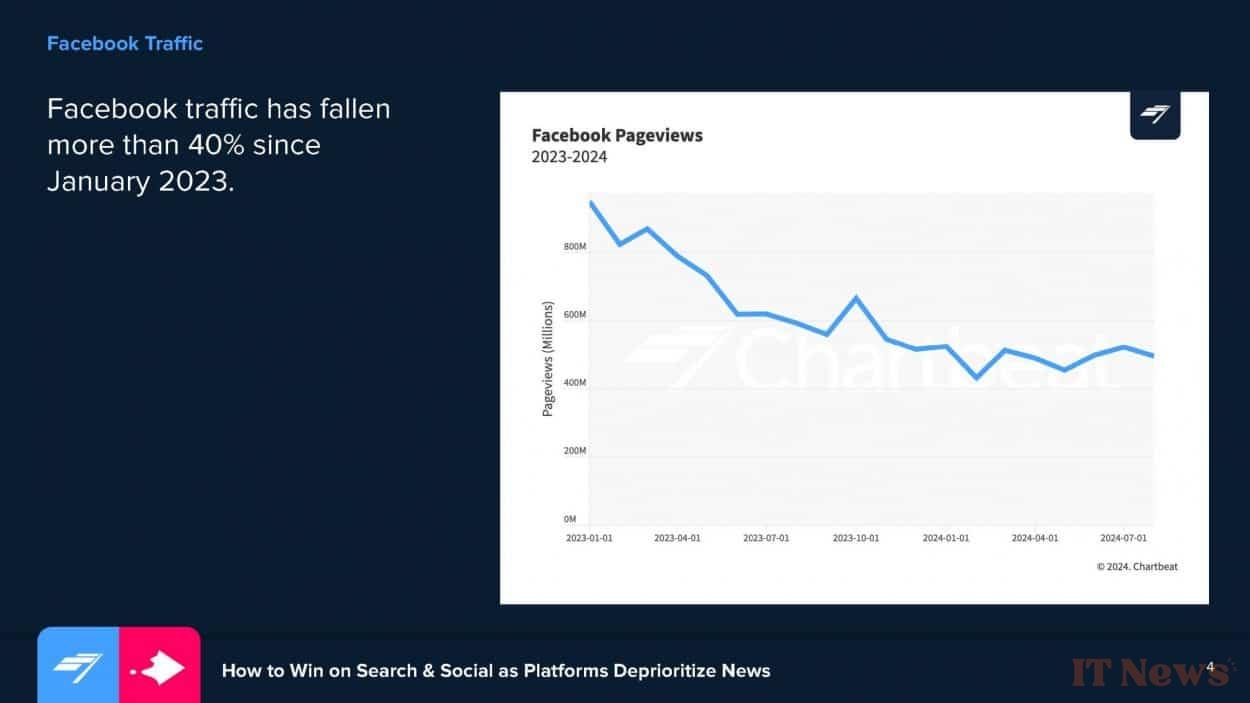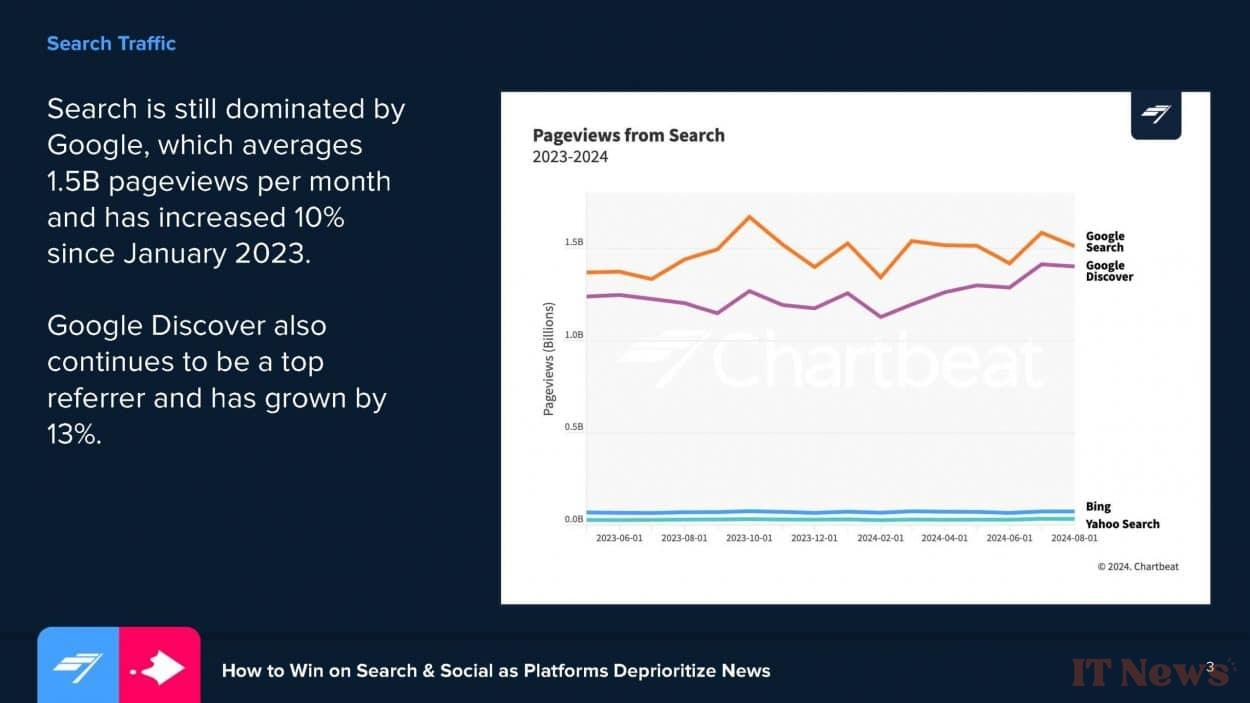Social networks, once dominant in directing traffic to news sites, are losing their effectiveness. For their part, tools like Google Discover are gaining in importance and fundamentally changing the content strategy of these publishing houses. This development has been marked by a significant drop in traffic from social media, offset by an impressive increase in personalized recommendations via Google’s mobile applications.
Drastic decrease in traffic from social networks
Between January 2023 and September 2024, the role of social networks in redirecting readers to American news sites has seen a notable drop. Indeed, according to data provided by Chartbeat, a company specializing in web audience analysis, the share of traffic coming from social platforms has fallen from 6% to 4%. This sudden one-third decrease highlights a worrying trend for publishers who relied heavily on this channel to attract visitors.
In particular, Facebook, which has long been a central pillar in generating traffic for news publishers, sees its contribution decrease by more than 40% over the same period. This decline can be attributed to several factors, including the regular algorithmic changes made by the social network aimed at favoring users' personal content to the detriment of commercial and press publications.

The rise of Google Discover
Faced with this decline in traffic from social networks, a tool has emerged as a promising alternative: Google Discover. Since its launch, Google Discover has allowed users to receive personalized content recommendations via Google's mobile applications. This feature now distinguishes some major publishers by generating more traffic than traditional Google search.
Statistics show that since January 2023, some American publications have seen their traffic from Google Discover increase by 13% on average. For “The Hill,” for example, this flow now exceeds that obtained through traditional search. This success is often attributed to the ability of editors to adapt their content to the personal recommendations and local preferences of users on Google Discover.

Strategic adaptation of publishers
The rise of Google Discover has not been without adjustments. What works on Google Search is falling short on Discover, prompting publishers to reinvent their strategies.
Google specifically recommends that publishers use page titles that capture the essence of the content without resorting to sensationalism or hyperbole. Newspapers like The Hill have found success by localizing national stories—that is, providing local angles on national stories to make them more interesting to specific readers.
Continued Experimentation and Optimization
While trends and practices are beginning to emerge, much remains to be understood about optimizing for Google Discover. As experts mentioned at the Online News Association (ONA) event, publishers are continuously testing different formats and publishing times to find out what works best.
The BBC, for example, is experimenting with the timing of its stories to maximise their visibility on Discover, having noticed that the ‘performance window’ for this type of content is shorter than on Google Search. This indicates that quick wins need to be capitalised on effectively, making planning and publishing more crucial than ever.
The Enduring Mystery of Discover
Despite some clues, figuring out what will work on Google Discover remains largely a matter of trial and error and constant experimentation. As several ONA speakers noted, understanding the dynamics of Discover is not as clear-cut as it is for traditional SEO. The rules change frequently with Google’s core updates, forcing publishers to remain flexible and innovative.
Laura Hazard Owen, a journalist at the Nieman Journalism Lab, summed up this ambiguity well: “It would be great to invest as much time and resources into Discover as we do with SEO, but right now it’s really just about understanding what headlines, frames, and stories work, and then seeing if we can replicate them as much as possible. But when a major update comes along, all of that advice can become obsolete.”



0 Comments